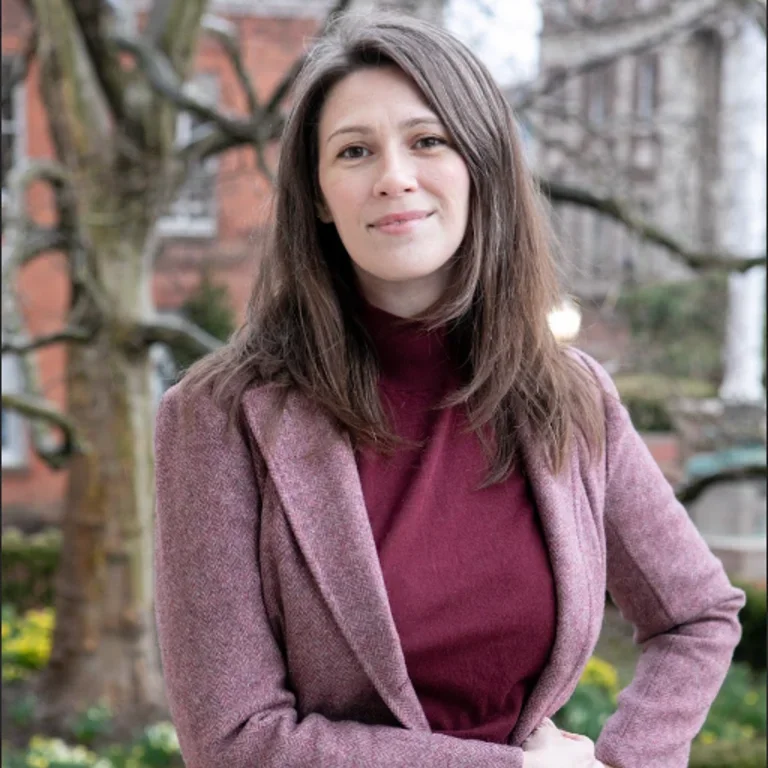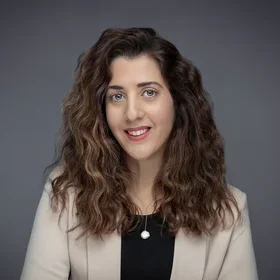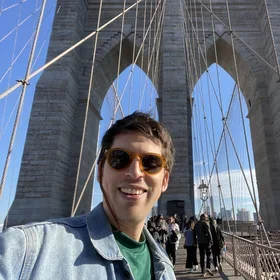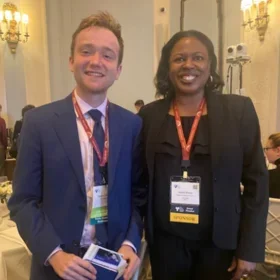By Katy LeDuc, Student in the Negotiation and Conflict Resolution Program, School of Professional Studies
As I approach the final stages of my Negotiation and Conflict Resolution (NECR) master’s program at Columbia's School of Professional Studies, I find myself reflecting on the ways my capstone experience allowed me to confront the issues I’m most passionate about: centering marginalized voices and promoting the equitable management of resources. Heavily influenced by John Paul Lederach’s concept of the moral imagination, I explored how peacebuilding can take many forms by pushing us beyond the comfort zones that enable harmful systems. Embracing the inherent uncertainty in peacebuilding is essential to creating a just future.
The capstone thesis is the culminating project that all NECR students complete over three semesters of coursework. We select and analyze the roots of a specific conflict, identify needs that inform interventions, and create M&E and network frameworks to sustain conflict transformation, looking at individuals and systems alike. Throughout my previous experience in community and police mediation, I’ve seen how systems can silence the very voices they are meant to protect, leaving marginalized communities without representation or recourse. My capstone explored how confronting this silence is key to disrupting entrenched power dynamics. This exploration deepened my commitment to ecological interdependence, a theme central to my capstone. Much of the beauty and mystery of this world lie in its interconnectedness. Recognizing how we rely on and impact one another reminds me that peacebuilding must honor these complex ties to cultivate balance and harmony.
In this context, my capstone focuses on the Navajo Nation’s fight for water in Arizona, where ecological interdependence is at the heart of their struggle for equitable resource management. A century after they were promised rights to water from the Colorado River by the American government, as many as 40% of households in the Navajo Nation lack running water. It’s an example of how homogenous decision-making spaces are often dominated by those who benefit from maintaining the status quo, leaving behind the very people most affected—indigenous communities, women, and low-income groups. Confronting systemic neglect in resource management—whether through intentional exclusion or the passive perpetuation of injustice—is key to making peacebuilding more inclusive and sustainable.
While many systems are designed to maintain order and keep us safe—like stop signs and public health protocols—we must challenge those that cause harm. We all bear the responsibility to question structures that exclude and marginalize, even when doing so forces us into uncomfortable conversations. In this pursuit, Lederach’s concept of paradoxical curiosity was instrumental in helping me challenge binary thinking and conventional approaches to resource inequity. The NECR program trained me to analyze the root causes and dynamics of conflict and to transform disputes through reasoned and resourceful interventions. This framework provided a strong foundation for my capstone on the Navajo Nation’s fight for water rights. My work has been an opportunity to apply what the program emphasizes: forging and stewarding relationships. The centrality of relationships guided my recognition that exclusion from decision-making processes not only silences voices but also undermines the essential interdependency between communities. I realized that peacebuilding must start with acknowledging our interconnectedness and shared responsibility in confronting injustice.
Closing out my time in the NECR program, I feel deep gratitude for the encouragement of professors who have connected me to incredible resources, shared their personal wisdom, and invited me to question everything, even at times their own curriculums. Beyond the invaluable array of perspectives to which I have been exposed, the most instrumental tool I take from this experience is the very manner in which they held space for us to ask uncomfortable questions and interrogate our own biases. As I move forward, I am committed to fortifying systems that prioritize equity, advancing more inclusive and sustainable peacebuilding efforts for generations to come.
About the Program
Columbia University’s Master of Science in Negotiation and Conflict Resolution prepares students to analyze the root causes and dynamics of conflict and to transform disputes through reasoned and resourceful interventions. The program focuses on developing self-awareness, tenacity, and interpersonal competency; building common ground; opening lines of communication; ensuring representation and recognition; and building sustainable possibilities for resolution.



